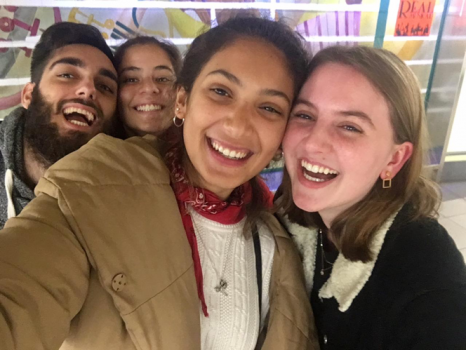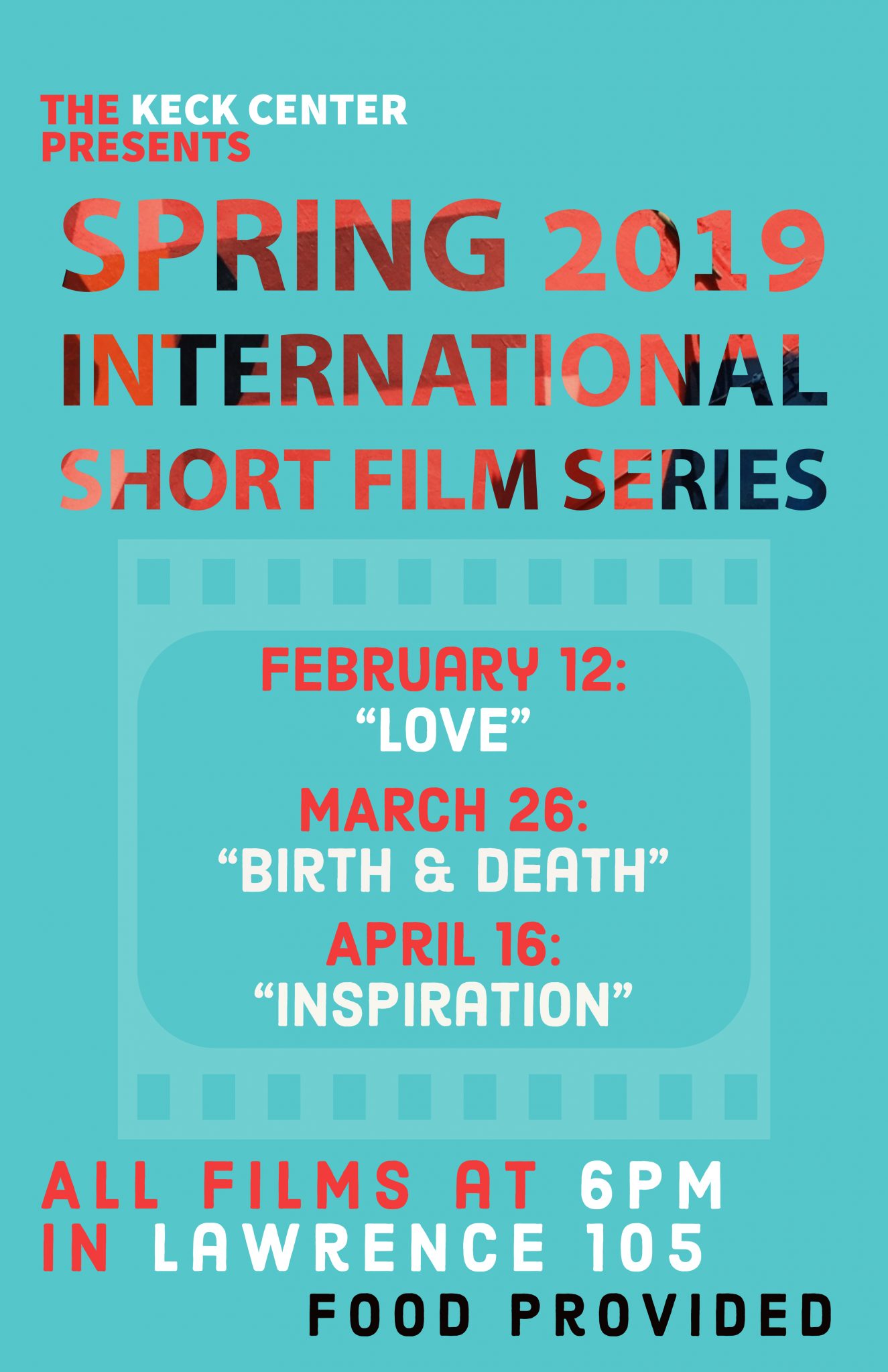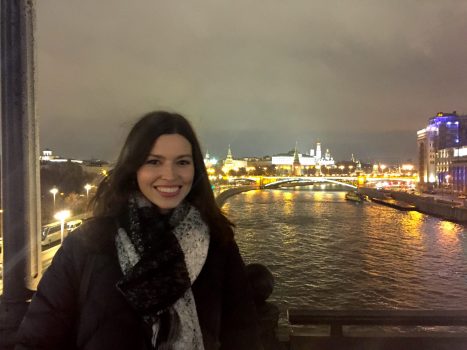
What languages do you speak/study?
I speak and study Spanish, and I speak Portuguese at an intermediate level.
Did you study languages before coming to Colgate?
Yes. Growing up I learned American Sign Language to communicate with my cousin, who is deaf. In high school I began to take Spanish classes, and also studied Swahili for about 6 months.
How has language study been different for you at Colgate than it was in high school?
Language study at Colgate, for me, has been entirely literature-based. In high school I only ever took language/grammar courses, but since my first semester at Colgate I have been taking courses in Latin American and Spanish literature. This makes language study much more engaging and dynamic for me personally.
What has been your favorite language class and/or professor on campus?
This is such a tough question. ROLA has such great professors. I think there’s a three-way tie here between Marta Pérez Carbonell, Ricardo Monsalve, and Fernando Plata. In particular, I really enjoyed Marta’s class on contemporary Spanish novels and her short stories class, as well as Ricardo’s seminar on Borges.
What else do you study besides languages?
I’m currently working on minors in Linguistics and English.
Do you see crossover between your fields of study?
Definitely. Linguistics is fascinating, and very relevant to Spanish studies, especially when looking at older texts in which you can actually see examples of the way the language has evolved. English, in also being a literature major, definitely crosses over and provides me with more points of reference for my Spanish literature studies.
Have you received any scholarships or fellowships for language study?
Last summer I received a Lampert Language Fellowship to study Portuguese. I was able to take private lessons all throughout the summer, and then put the language skills I’d learned to the test in December, when I visited mainland Portugal and the Azores Islands.
Where have you been able to study abroad?
I was lucky enough to be able to study abroad in Madrid, Spain during the Fall 2018 semester. The Madrid trip is a Colgate program run through the Spanish department in collaborating with CEU San Pablo, a private university in Madrid. Throughout the semester, we also travelled around Spain, visiting Toledo, Granada, Santiago de Compostela and lots of other towns.
What was your study abroad experience like? How did it contribute to your education at Colgate?
My study abroad experience was so wonderful. Speaking Spanish 24/7 was so helpful for my fluency and confidence, and being able to live in and explore Madrid was especially exciting after two years in Hamilton. My all time favorite part of my study abroad experience was, without a doubt, the people I met in Madrid. I got very close with a group of students from CEU, including some Spanish students as well as some international students from Peru and Colombia. We would often go out to eat together or spend hours hanging out at one of our apartments, chatting in Spanish and occasionally singing, dancing, and playing guitar, since lots of them happen to be musically inclined. Spending so much time with them was incredibly helpful for improving my accent and my casual conversational abilities.
What recommendations would you give to someone who wanted to learn the language you study?
DO IT! Spanish is arguably one of the most useful (not to mention beautiful) languages you can learn, especially as someone living in North America.
Why do you think studying languages is important?
It opens up an entire new population of the world to you. It also helps to expand your worldview in a very concrete, psychological way: if you subscribe to the theory of linguistic relativity, you understand that the language you speak limits, channels, and shapes your reality. When you learn a new language, you often change your interpretation of reality. Additionally, if you enjoy traveling, I think it’s crucial to speak another language besides English to enrich your experience.
What impact do you see language study having on the rest of your life?
It will hopefully dictate and guide my entire career path! My current plan is to apply for doctoral programs in Spanish literature, and to hopefully eventually become a university professor. Additionally, I now have many close friends that I would’t have gotten to know if I didn’t speak Spanish. I see those friendships continuing – and new ones being created throughout the rest of my life – as a result of studying Spanish.




